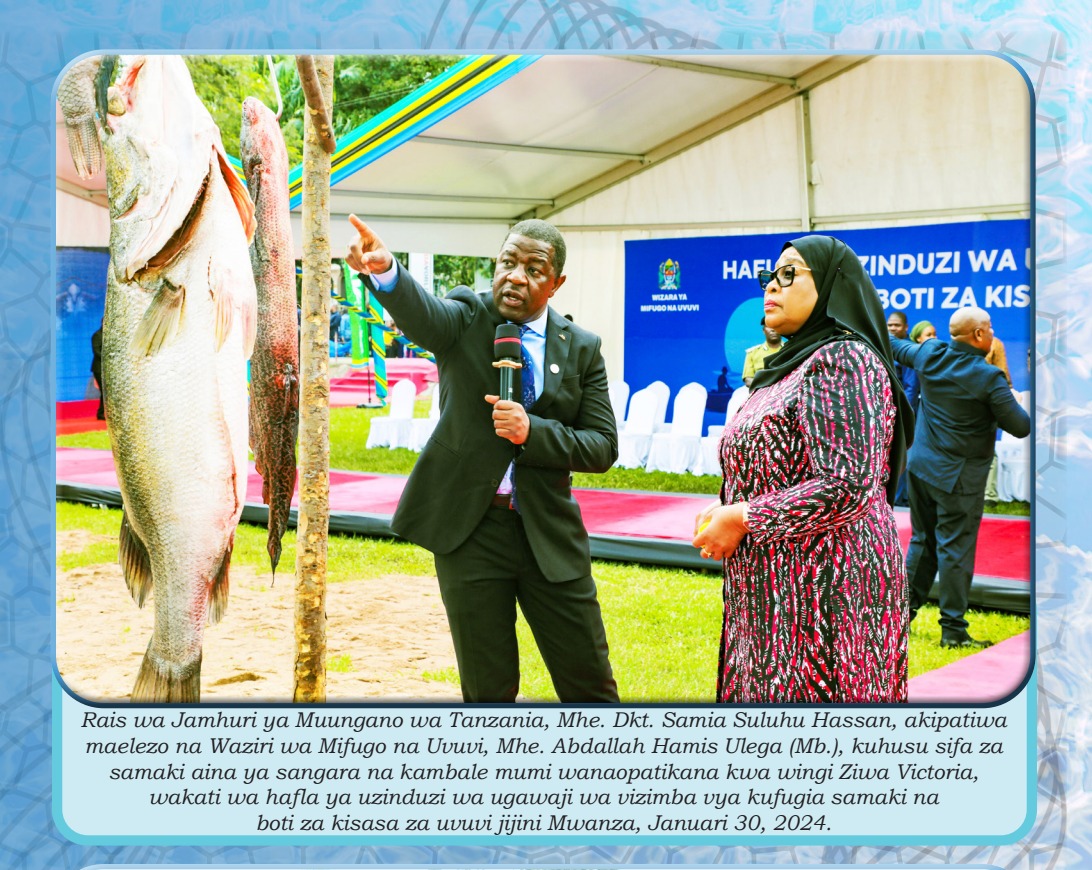In 2024/5 budget speech delivered by Hon. Abdallah Hamis Ulega (MP), Minister of Livestock and Fisheries, emphasized the government’s commitment to expanding livestock breeding programs. These programs are crucial for improving the genetic quality of livestock, enhancing productivity, and ultimately boosting the incomes of livestock farmers. The budget outlines several initiatives aimed at expanding and improving livestock breeding programs across the country.
One of the key initiatives highlighted in the budget is the distribution of high-quality breeding stock. In the fiscal year 2023/2024, the government plans to distribute 60 Brahman bulls to livestock groups. Brahman bulls are known for their superior genetics, which include traits such as high growth rates, good meat quality, and resistance to diseases and harsh environmental conditions. By providing farmers with access to these improved breeds, the government aims to increase meat production and improve the overall quality of livestock.
The budget also emphasizes the importance of artificial insemination services. Artificial insemination is a modern breeding technique that allows for the controlled and selective breeding of livestock. This technique is particularly useful for improving the genetic quality of livestock by allowing the use of semen from high-quality bulls. The government has initiated various programs to enhance artificial insemination services, including the training of inseminators and the establishment of semen distribution centers. These efforts are aimed at making artificial insemination services more accessible to farmers, thereby improving the genetic quality of livestock and increasing productivity.
Training and capacity building are essential components of the government’s strategy to expand livestock breeding programs. The budget includes initiatives to train livestock farmers and extension officers on best practices in animal breeding. These training programs cover topics such as selection of breeding stock, breeding techniques, and management of breeding programs. By equipping farmers and extension officers with the necessary knowledge and skills, the government aims to ensure the successful implementation of breeding programs and improve livestock productivity.
The establishment of breeding centers is another significant step mentioned in the budget. These centers serve as hubs for breeding high-quality livestock and providing training and support to farmers. The centers are equipped with modern facilities and staffed by experts in animal breeding. They provide farmers with access to high-quality breeding stock, semen, and other breeding inputs. By establishing breeding centers, the government aims to create a sustainable and efficient breeding system that supports the growth and development of the livestock sector.
The budget speech by Hon. Abdallah Hamis Ulega (MP) also highlighted the importance of improving the genetic quality of indigenous livestock breeds. While exotic breeds like Brahman bulls have their advantages, indigenous breeds are well-adapted to local conditions and play a crucial role in the livelihoods of many farmers. The government is committed to preserving and improving the genetic quality of indigenous breeds through selective breeding programs. These programs aim to enhance the productivity and resilience of indigenous livestock, ensuring that they continue to contribute to food security and rural livelihoods.
In addition to genetic improvement, the government is focused on improving the management of breeding programs. The budget includes initiatives to strengthen the coordination and monitoring of breeding programs at both national and regional levels. This involves the establishment of breeding committees and the development of breeding policies and guidelines. By improving the management of breeding programs, the government aims to ensure their effectiveness and sustainability.
Public awareness and education are also vital for the success of livestock breeding programs. The budget includes initiatives to raise awareness about the benefits of improved breeding practices and to educate farmers on how to implement these practices. This involves the dissemination of information through various channels, including workshops, seminars, and media campaigns. By increasing awareness and knowledge, the government aims to encourage more farmers to participate in breeding programs and adopt improved breeding practices.
The government’s efforts to expand livestock breeding programs are expected to have significant economic benefits. Improved breeding practices lead to higher productivity, which translates into increased incomes for livestock farmers. Higher productivity also means more efficient use of resources, reducing the costs associated with livestock production. By investing in breeding programs, the government aims to enhance the sustainability and profitability of the livestock sector.
In conclusion, the expansion of livestock breeding programs outlined in the budget speech by Hon. Abdallah Hamis Ulega (MP) reflects the government’s commitment to boosting productivity in Tanzania’s livestock sector. Through the distribution of high-quality breeding stock, enhancement of artificial insemination services, training and capacity building, establishment of breeding centers, improvement of indigenous breeds, and public awareness initiatives, the government is taking comprehensive steps to improve the genetic quality of livestock and increase productivity. These initiatives are expected to have a significant positive impact on the livelihoods of livestock farmers and contribute to the overall economic growth and development of Tanzania.
